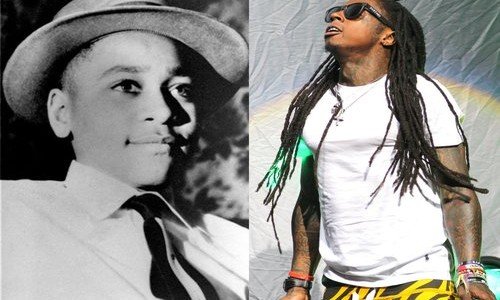PepsiCo has dropped Lil Wayne as Mountain Dew spokesman just days after pulling a racially-insensitive commercial for the soft drink featuring a goat voiced by Tyler, The Creator.
According to TMZ, PepsiCo decided to drop Lil Wayne on Friday after he “unapologetically” compared the beating of civil rights icon Emmett Till to rough sex.
The four-time Grammy winner, who’s fronted Mountain Dew since last year, came under fire in February for his verse in Odd Future’s song Karate Chop.
Lil Wayne rapped: “Pop a lot of pain pills/’bout to put rims on my skateboard wheels/beat that p***y up like Emmett Till.”
The 30-year-old New Orleans rapper, born Dwayne Michael Carter, Jr., deeply angered the Emmett Till’s family who rejected his apology letter for his refusal to write: “I am sorry.”

Airickca Gordon-Taylor was Emmett Till’s cousin and serves as the executive director of the Mamie Till Mobley Memorial Foundation.
She told TMZ on Wednesday: “While it’s commendable that he has vowed to respect the legacy of Emmett Till and his memory to <<not use or reference Emmett Till or the Till family in his music>>, this statement falls short of an apology, as none is mentioned.”
Airickca Gordon-Taylor said the family want Lil Wayne to understand how his comparison of a sex act to the Chicago native’s torture death in Mississippi is hurtful to the black community.
“It was a heinous murder,” Airickca Gordon-Taylor said.
“He was brutally beaten and tortured, and he was shot, wrapped in barbed wire and tossed in the Tallahatchie River.
“The images that we’re fortunate to have [of his open casket], they demonstrate the ugliness of racism.
“So to compare a woman’s anatomy – the gateway of life – to the ugly face of death, it just destroyed me. And then I had to call the elders in my family and explain to them before they heard it from some another source.”
Emmett Till’s death became a symbol of the inequalities faced by the African-American population in society and the legal system.
He was just 14 when he went to Mississippi to visiting family when he was killed for flirting with a white woman in 1955.
Emmett Till was beaten, had his eyes gouged out and was shot in the head before his assailants tied a cotton gin fan to his body with barbed wire and tossed his body into a river.
Two white men, including the woman’s husband, were acquitted of the killing by an all-white jury.
Only months later, protected from being re-tried due to double jeopardy, the killers admitted in a magazine article that they had indeed murdered the teen.
Emmett Till’s body was recovered and returned to Chicago where his mother, Mamie Till, insisted on having an open casket at his funeral.
The pictures of his battered body and the trial were early flashpoints in the civil rights movement.
Bob Dylan even wrote a song about it, The Death of Emmett Till.
